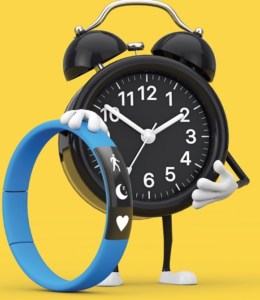
A team of West Virginia University neuroscientists studied eight commercial sleep trackers and found only two that offered accurate measurements of sleep time, according to a news release from the Morgantown, West Virginia, university.
Fitbit and Oura had the best results when measuring total sleep time, total wake time and sleep efficiency. All the other trackers either overestimated or underestimated one of those categories. None of the sleep trackers were as useful as an EEG when it came to identifying sleep stages, such as REM or nonREM sleep.
“This is not surprising, since typically brain waves are needed to properly measure this,” said Joshua Hagen, director of the Human Performance Innovation Center at the WVU Rockefeller Neuroscience Institute and lead researcher. “However, when thinking about what you generally have control over with your sleep — time to bed, time in bed, choices before bed that impact sleep efficiency — these can be accurately measured in some devices.”
The study, which was published online Oct. 27 in Nature and Science of Sleep, involved five adult participants, ages 26 to 41. They wore the sleep trackers for a combined total of 98 nights, the release said.
Hagen himself wears four to five sleep trackers at night. “I’m a big believer in living the research,” he said. “I need to understand what the consumer sees in the smartphone apps, what the usability of the devices is, etc. Without that objective sleep data, you can only rely on how you feel when you wake up — and while that is important, that doesn’t tell the whole story. If your alarm goes off and you happen to be in a deep sleep stage, you will wake up very groggy and could feel as though that sleep was not restorative when in fact it could have been. It’s just not subjectively noticeable right at that moment.”



